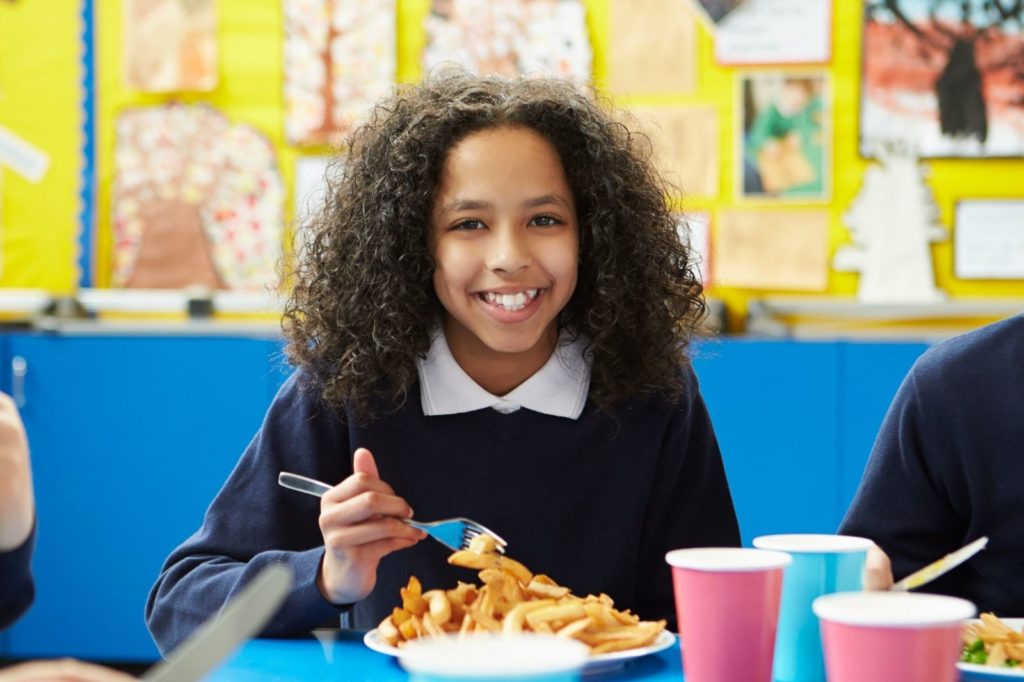When we talk about mental health and wellness in children, we often focus on what adults are doing – being vigilant for the warning signs, getting kids into the right treatment programs, raising awareness in our communities. Sometimes in all our efforts to raise awareness and advocate for our kids, adults forget that young people themselves have tremendous power to change their worlds and the lives of those around them.
Sometimes it’s a simple as having someone to sit next to at lunch.
A few years ago, high school student Denis Estimon noticed too many kids in his Boca Raton high school ate lunch alone. When the lunch bell would ring, the kids would swarm the courtyards and form their usual social groups, which invariably left some kids out.
“It’s not a good feeling; you’re by yourself,” Denis explains in this CBS News story, “and that’s something that I don’t want anybody to go through.”
A Haitian immigrant, Denis knows first-hand the pain of social isolation, beginning when he was in elementary school and newly arrived in the U.S. Lunch time was especially hard, and the loneliness was intense. As a young adult, he took it upon himself to change the culture at his school.
“To me if you’re not going to make that change yourself, who’s going to do it?” Denis asks.
He and some friends joined together to create a club called We Dine Together, and spend their lunch hours reaching out to the kids who are by themselves, offering companionship during the meal. That companionship often turns into true friendship, among kids who might otherwise never interact.
The idea has taken root; We Dine Together is now a national grassroots student-led movement, with clubs forming in schools in several states. They have become a part of the anti-bullying organization BeStrong.Global and Denis, now a graduate from Boca High, is the agency’s director.
The overarching premise of BeStrong is to fight against bullying by training and equipping students “to become more resilient, arm them with access to local services and organizations that can help, and unite them to change their families, schools, communities, states, and country,” according to their website.
Bullying is a common experience for so many of our kids. We see the stats and the heartbreaking stories that show children who are bullied experience real suffering that can interfere with their social and emotional development, as well as their school performance. Some victims of bullying have even attempted suicide rather than continue to take the harassment and punishment.
The outreach efforts of groups like We Dine Together and BeStrong make it their mission to change this.
“Student leaders make it a priority to create a positive social atmosphere on their campuses,” explains We Dine Together’s website. “For a new incoming student, the club is a welcoming committee. To others, WDT can be a safe haven or space where they can be themselves without fear of rejection. For the school, the WDT family is a catalyst for real social change.”
Programs like We Dine Together and BeStrong are changing schools and communities where it matters most – in the everyday lives of kids who are lonely, isolated and often more subject to bullying than kids who are members of a tight-knit social group.
As Clinical Psychologist Dr. Joshua Essery notes in this article on bullying, finding and utilizing a social network for support can be a key way to combat bullying. He advises to, “Build a group of peers and friends that agree that if they see or hear something that they will say something both to the bully and those in authority.”
BeStrong and the We Dine Together movement makes it possible for kids on the sidelines to do just that, and feel they have people around they can turn to. Our children are amazingly resilient, big hearted and caring when given a chance – and they are making an impact on their own communities and the lives of children around the country.










